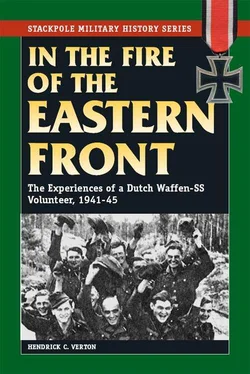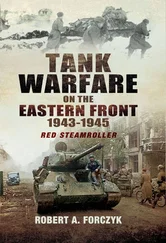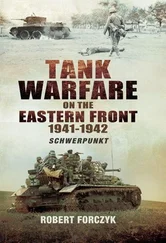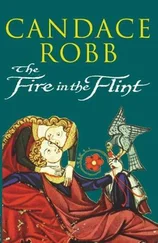It was about 11 o’clock on 12 June, on the corners of Lützow and Klosterstrasse, that it happened. Everything in my life, at that point, which was dull and cloudy, blew away. I actually thanked my lucky stars, on that warm and sunny day, that ‘lady luck’ had guided my footsteps to Breslau. In talking to a Polish ‘handler’, I noticed dark brown locks of hair bobbing on the shoulders of their owner. She was a young attractive girl, dressed in a light blue anorak. In that moment I was spellbound. I was fascinated in seconds, by this slim and lovely being who appeared to be from another world. So much so, that I simply had to get to know her. My bartering came to a very abrupt end and I followed her.
To my immediate dismay, my introductory routine with girls was to prove useless this time. Well, perhaps I should not have been surprised. Convinced that she was German, I should also have known that she could not possibly think that this foreign-speaking nobody was very pro-German. I could not hide my accent, nor the colourful cockade on my lapel. Nor could she know my problems in that precarious time of terror and harassment against the Germans. She had every right to be suspicious and more than a little irritated at my advances. When I had a chance, then I would have to prove to her that my intentions were pure. So why not with my identity? I bared my soul, my past, and my army career in fighting on the side of the Germans, to this lovely maiden. Her mistrust and irritation disappeared. She appeared regal to me, untouchable. I realised that relaxed flirting with her was out of place. I did not even think of it, for this was so different, so very different. I had never been struck so heavily by ‘cupid’s dart’, as now. I was so happy that I could have stormed the heavens. Friedrich Schiller’s words came to me, spoke to me, from his verse, “the first love, a golden time, when eyes look into open heavens”.
All my experiences in the past, both good and bad, were now null and void, since the starry hours that began since my meeting with Brigitte. That was the name of this twenty-year old. I was underway to fulfilling the intimations of the Laska family, that I should take a ‘momento’ home with me. It was a ‘momento’ from Breslau, from the war, from Germany. It was a ‘bounty-packet’ in the shape and form of a bride.
We met every day thereafter, when Brigitte’s work allowed. For like all other Germans, she had to work for the Poles. Her employees were just like Elzbieta’s parents. Mr and Mrs Markowitz, Congress Poles, were a very friendly pair, owners of a colonial-ware shop and waiting to go to America. They wanted to take Brigitte with them as an adopted daughter.
I always picked her up from the shop in Feldstrasse, and with every day I knew that I had found my partner for life, beyond any doubt. We sauntered for hours on end, from one corner of her birthplace to another, and in all the surrounding areas.
Those warm June days spent with Brigitte, were the most wonderful of my life, spiced only with a kiss or two, although we became so close that after only a short time, we knew what the other was thinking. There was no need for our love for one another to be put into words. It appeared to me that our souls were totally bound together. Soon, I started to talk about marrying. Later, although under different circumstances, that was to be utopia.
Brigitte’s skin was as brown as her eyes, but this did not come from a beauty spa. It came from forced labour in the fields around Liegnitz, under the Russians. It was some 50 kilometres west of Breslau, where she had been evacuated with her mother, in January 1945. She too had experienced the exodus in the snow, ice and 20° below freezing. She had seen uncountable people die, including her mother who died from dysentery shortly after their arrival. Now as a total orphan, Brigitte stood there totally alone and under the ‘victors’ wrath. The drunken Russian soldiers, frustrated at the long and tough defence of Breslau, often vented their spleen on those defenceless German citizens. Those whom they did not transport away, were put to work in the fields under the old Russian motto “no work, no food”.
Brigitte could not forget the plight of the horses when following the plough, for all had wounds, from bullets or shrapnel and their wounds had never been attended to. When horses failed then the Germans were saddled with their work and they had to pull the ploughs and farrows, like Volga boat-people, pulling their barges. She was one of the lucky ones, for she could in the first few weeks of the occupation avoid the raping that was customary, together with other young girls. They could hide themselves, quite successfully, in a hole in a mountain of coke that they made, in the grounds of a nursery. Not only at nights, but also by day they fled to this haven of safety, where they stayed, freezing and still as mice, and were fed at nights by the older women. Only those who had experienced Bolshevism, such as I, with the motivation of leaving my home to fight against it, can understand its system.
In July of 1945, Brigitte returned to Breslau to find her parents’ home in ruins. In October she was ill with typhus, which she survived in spite of the fact that medical attention for Germans was a catastrophe. Many died of typhus. One could say that we were both orphaned, for I did not know if my family had survived or not. My last communication from them was at the end of 1944. This ethnic-cleansing programme of the Poles was now to rob her of her homeland.
Far quicker than we wanted, she and all the Germans had to leave their district on 22 June. It broke our hearts and made us happy at the same time, that one of us could turn our backs on that Polish commercial and economic management. Our happiness was however tinged with worry, for the expelled could decide nothing for themselves, including where they wanted to go. They were forced to go where they were sent, be it to the West, or to the Communist Eastern zones of Germany. It had been a journey that decided life or death in many cases. Thousands had already died, in the middle of December, in conditions that could be compared to cattle transport. It was important that the Silesians were sent on their way. 1,600 had been given a loaf of bread and a herring as provision for the journey, which had taken a week. In temperatures of 20—25° below, they were herded into cattle-wagons, which were unheated and with no toilet facilities. They arrived in Potsdam, in Bruckenburg, in the Western zones with 35 dead. After being delivered into hospital, a further 141 died from the results of pneumonia, heart attacks or the results of freezing.
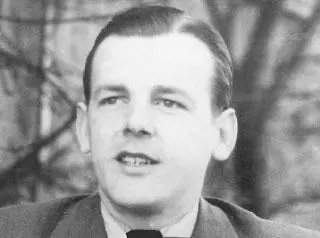
They found happiness in a city hostile to Germans (and their former soldiers): Brigitte and Hendrik.
My hopes for her well-being were realised when receiving a letter from Brigitte from Detmold, which was in the British zone. The journey in goods and cattle-wagons had taken eight days, but she had survived the stress. In Görlitz and on German soil, but under Communist direction, the wagons were directed on to other tracks, so that the expelled could be plundered once more, of the last that they possessed. My medals, which Brigitte had hidden in balls of wool, had not been found.
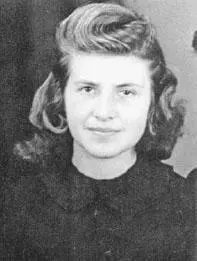
In Breslau, things were moving on for the Laskas and myself, for we had registered with the German charitable Organisation ‘Caritas’. At the same time, I presented my Russian discharge papers and was accepted as any other German soldier, although I was Dutch. My BVB paper was not shown because of the danger of a DP classification, and deportation to Holland.
Читать дальше
